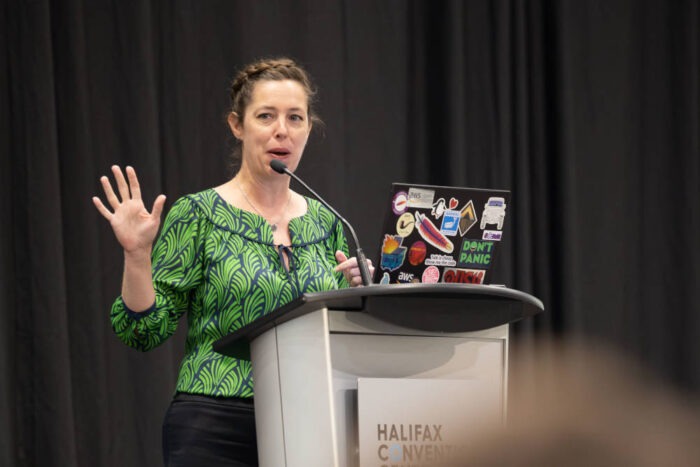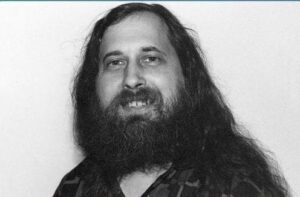On Monday, the Apache Software Foundation announced that Ruth Suehle has replaced David Nalley as the foundation’s president.

The Apache Software Foundation, an open-source organization that’s the caretaker to more than 320 open-source projects and initiatives, on Monday announced the appointment of Ruth Suehle as the foundation’s president. She steps into the role immediately, replacing David Nalley who has held the position for four years.
Suehle is no newcomer to open-source software or to the ASF. She has served as the foundation’s executive vice president since 2020, and since 2018 has been actively involved with Community Over Code, the organizations annual conference that was formerly known as ApacheCon.
In a blog published Monday, Suehle noted that the organization is something of a pioneer in the open source arena.
“In a sense, the Apache Software Foundation is almost as old as open source itself,” she wrote. “The term ‘open source’ was coined in February 1998, and the ASF, already an active group of collaborators, was officially incorporated … in June 1999. Of course, the pieces that coalesced into the open source movement had been growing for many years before that, and likewise, so had the work that eventually became the ASF.”
In addition to her years of experience within ASF, she also brings to the table an even longer history as an active preacher of the open-source gospel, both from within the corporate world and for various user communities. She spent 15 years at Red Hat, many of them doing community outreach from the company’s Open-Source Program Office. For the last couple of years she’s been the Director of Open Source at the analytics company SAS, also from within an OSPO.
Her current position is interesting, considering that SAS isn’t known for being an open-source company — in fact, it’s proprietary all the way to the bone.
“SAS is not a historically open-source company — it does not have open-source or even open-core products — but like everything else, now has many open source components,” she told me recently in an interview ahead of this year’s All Things Open conference where she was a speaker. “So we established an OSPO about two years ago, and what that gives the company is a single resource, which is me and my team, to turn to for all sorts of things. So, for people who have never been part of open-source communities, we can help them learn how to do that.”
That skill set should come in handy as ASF’s president, since most if not all of the software being developed and maintained under the Apache umbrella is enterprise-focused.
What’s Ahead for Apache Software Foundation
In Monday’s blog Suehle indicated that a big focus for Apache during her tenure will be on security. She pointed out that in a few weeks the Cyber Resilience Act will go into effect in the European Union, which will lead to mandatory security reporting beginning in September, 2026 and full implementation of the act in December 2027. On top of this, the EU recently adopted a new Product Liability Directive, which among other things updates software rules that date back to 1984. Here in the US, companies are still figuring out how to be compliant with the 2021 Cybersecurity Executive Order.
“The ASF has a solid track record of trustworthy security practices, but there’s always room for improvement, and we look forward to continuing to collaborate with agencies not just in the EU and US, but around the world to ensure our projects remain ready for future security challenges,” she said.
Another priority will be “to welcome the next generation of contributors.”
“Many of us in open-source software, not just the ASF, have increasingly looked around the virtual room and noticed the graying of the ecosystem,” she added, going on to list the foundation’s 800-plus active membership (“a group built on a web of trust,” she said), as well as the 9,500 or so committers who contribute to more than 300 ASF projects.
“The continued success of open source software and our ability to adapt to the needs of a perpetually changing world relies on one thing only, the fundamental principle that has made open source successful: community,” Suehle said. “Community not only within the ASF, but across open-source projects, the companies that rely on them, governments around the world, and among our ecosystem’s software foundations.”
Christine Hall has been a journalist since 1971. In 2001, she began writing a weekly consumer computer column and started covering Linux and FOSS in 2002 after making the switch to GNU/Linux. Follow her on Twitter: @BrideOfLinux






